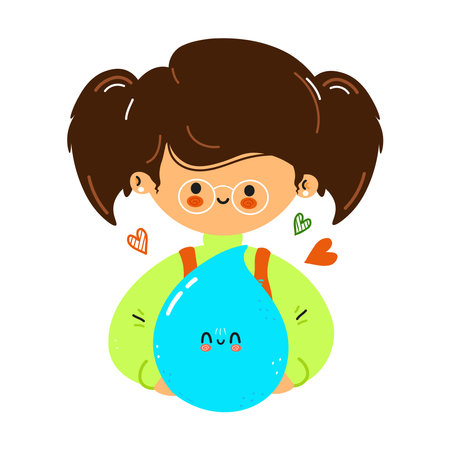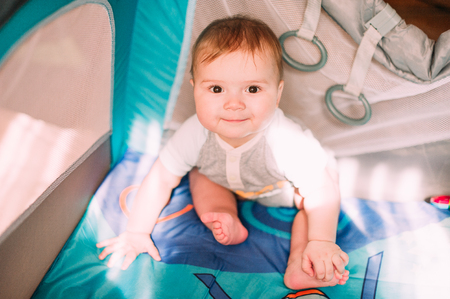1. Introduction: Understanding Your Options
As a new parent, one of the first big decisions you’ll face is choosing between disposable and cloth diapers. Both options have their own advantages and drawbacks, and the best choice depends on your family’s lifestyle, budget, and personal preferences.
Why This Choice Matters
Diapers are a daily necessity for your baby, and the type you choose can impact your budget, convenience, and even the environment. Some parents prefer disposables for their ease of use, while others opt for cloth diapers to reduce waste and save money over time. Understanding the pros and cons of each option will help you make an informed decision that works best for your family.
Key Factors to Consider
When deciding between disposable and cloth diapers, here are some important factors to keep in mind:
| Factor | Disposable Diapers | Cloth Diapers |
|---|---|---|
| Convenience | Easier to use, no washing required | Requires washing but can be reused |
| Cost | Higher long-term cost due to repeat purchases | Higher upfront cost but saves money over time |
| Environmental Impact | Creates more landfill waste | More eco-friendly with less waste |
| Comfort & Fit | Slimmer fit, widely available sizes | Softer materials, customizable fit |
The Right Choice for Your Baby
No single diapering option is perfect for every family. Some parents use a mix of both—cloth diapers at home and disposables when traveling. The key is to find what works best for your baby’s needs and your daily routine. In the next sections, we’ll break down the pros and cons of each type in detail so you can make the most informed decision.
2. Disposable Diapers: Pros and Cons
Disposable diapers are a popular choice for many parents because of their convenience and high absorbency. However, they also come with some downsides, such as cost and environmental concerns. Let’s take a closer look at the pros and cons of disposable diapers.
Pros of Disposable Diapers
1. Convenience
One of the biggest advantages of disposable diapers is their ease of use. They come pre-made, are easy to put on and take off, and require no washing. This makes them especially useful for busy parents or caregivers.
2. High Absorbency
Disposable diapers are designed with highly absorbent materials that can hold moisture effectively, keeping your baby dry for longer periods. This can help reduce diaper rash and discomfort.
3. Leak Protection
Most disposable diapers have built-in leak guards and snug-fitting elastic bands to prevent leaks, making them a reliable option for both daytime and overnight use.
4. Travel-Friendly
If youre on the go, disposable diapers are a hassle-free option since they don’t require washing or carrying around dirty diapers until you get home.
Cons of Disposable Diapers
1. Cost Over Time
While each individual diaper may not seem expensive, the cost adds up over time. A baby typically goes through thousands of diapers before potty training, which can make disposables a significant expense.
2. Environmental Impact
Disposable diapers contribute to landfill waste since they are not biodegradable. It takes hundreds of years for them to break down, making them less eco-friendly than cloth alternatives.
3. Potential Skin Irritation
Some babies may have sensitive skin that reacts to the chemicals or fragrances used in disposable diapers, leading to irritation or diaper rash.
4. Limited Breathability
The plastic materials used in disposable diapers may reduce airflow to your baby’s skin, increasing the risk of moisture buildup and discomfort.
A Quick Comparison: Pros and Cons of Disposable Diapers
| Pros | Cons |
|---|---|
| Convenient and easy to use | Can be expensive over time |
| Highly absorbent for dryness | Adds to landfill waste |
| Built-in leak protection | Potential skin irritation from chemicals |
| No need for washing or maintenance | Less breathable than cloth diapers |
| Ideal for travel and outings |
Ultimately, disposable diapers offer great convenience but come with trade-offs like cost and environmental impact. Understanding these factors can help you decide whether disposables are the right choice for your baby and lifestyle.

3. Cloth Diapers: Pros and Cons
Many parents consider cloth diapers as an eco-friendly and budget-conscious alternative to disposable diapers. While they require more effort in terms of washing and maintenance, they offer several advantages that make them a popular choice for families looking to reduce waste and save money in the long run.
Pros of Cloth Diapers
💰 Cost Savings
One of the biggest benefits of cloth diapers is the potential for long-term savings. Although the upfront investment can be higher, reusable diapers can be used for multiple children, making them a cost-effective choice.
🌱 Eco-Friendly Choice
Cloth diapers help reduce landfill waste since they are reusable. Disposable diapers take hundreds of years to decompose, whereas cloth diapers significantly cut down on environmental impact.
🩷 Gentle on Baby’s Skin
Most cloth diapers are made from natural fibers, which can be softer and less irritating on sensitive skin compared to some disposables that contain chemicals or fragrances.
🎨 Variety and Customization
Cloth diapers come in various designs, colors, and styles. Parents can choose from different materials and absorbency levels to fit their baby’s needs.
Cons of Cloth Diapers
🧺 More Laundry
The biggest downside to cloth diapers is the extra laundry. Parents need to wash them frequently, which requires time, water, and energy usage.
💸 Upfront Investment
The initial cost of purchasing cloth diapers can be expensive compared to buying a pack of disposables. However, this cost evens out over time with reuse.
🏠 Less Convenient When Traveling
If youre out and about or traveling, carrying soiled cloth diapers until you get home to wash them can be inconvenient compared to simply tossing a disposable diaper.
Comparison Table: Cloth vs. Disposable Diapers
| Cloth Diapers | Disposable Diapers | |
|---|---|---|
| Cost Over Time | Saves money in the long run | Ongoing expense |
| Sustainability | Easier on the environment | Adds landfill waste |
| Laundry & Maintenance | Requires regular washing | No washing needed |
| Convenience | Takes more effort when outside the home | Easier for travel and daycare |
| Baby’s Skin Sensitivity | Softer materials, fewer chemicals | Might contain fragrances or gels |
If you’re considering cloth diapers, it’s important to weigh these pros and cons based on your lifestyle, budget, and personal preferences. Many parents find a hybrid approach—using both cloth and disposable diapers—works best for their family.
4. Health and Comfort: Which Is Better for Your Baby?
When it comes to your baby’s health and comfort, choosing between disposable and cloth diapers can be challenging. Each type has its own benefits and drawbacks, especially when considering skin sensitivity, breathability, and potential health impacts.
Skin Sensitivity and Diaper Rash
One of the most common concerns for parents is diaper rash. Both disposable and cloth diapers can contribute to this issue, but in different ways:
| Diaper Type | Impact on Skin Sensitivity |
|---|---|
| Disposable Diapers | Contain absorbent chemicals that wick moisture away from the skin, helping to keep your baby dry. However, some babies may have sensitivities to fragrances, dyes, or other materials used in disposables. |
| Cloth Diapers | Made from natural fabrics like cotton or bamboo, which are gentle on the skin. However, they do not wick moisture away as effectively as disposables, increasing the risk of prolonged wetness and potential diaper rash if not changed frequently. |
Breathability and Comfort
The breathability of a diaper affects how much air circulates around your baby’s skin, reducing irritation and discomfort.
- Disposable Diapers: Designed with breathable layers but often include plastic liners that may trap heat, potentially causing discomfort in warm climates.
- Cloth Diapers: More breathable due to their fabric composition, allowing better airflow. However, they can feel bulkier and less flexible compared to disposables.
Chemical Exposure Concerns
A major point of discussion among parents is the presence of chemicals in disposable diapers versus the natural materials used in cloth diapers.
| Chemicals & Materials Used | |
|---|---|
| Disposable Diapers | May contain dyes, fragrances, chlorine bleaching byproducts (like dioxins), and absorbent gels. Some brands offer hypoallergenic or organic options that minimize these concerns. |
| Cloth Diapers | No chemicals if using organic cotton or bamboo options. However, detergent residues from washing can sometimes cause irritation if not thoroughly rinsed out. |
Sensitivity Considerations for Different Babies
The best choice often depends on your baby’s individual needs:
- If your baby has very sensitive skin or frequent diaper rashes, you may prefer cloth diapers made from organic materials.
- If you need a highly absorbent option for overnight use or long outings, disposables might provide better protection against leaks and irritation.
- If you’re concerned about chemical exposure, look for fragrance-free and hypoallergenic disposable brands or opt for untreated natural fiber cloth diapers.
No matter which type of diaper you choose, frequent changes and proper cleaning routines are essential to keeping your baby comfortable and rash-free.
5. Budget and Lifestyle Considerations
When choosing between disposable and cloth diapers, your budget, daily routine, and childcare choices all play a significant role. Some parents prioritize convenience, while others focus on long-term savings or environmental impact. Let’s break down how different factors influence your decision.
Cost Comparison: Upfront vs. Long-Term Expenses
One of the biggest considerations is cost. Disposable diapers require continuous purchases, while cloth diapers involve a higher upfront investment but can save money over time.
| Diaper Type | Upfront Cost | Ongoing Cost | Total Estimated Cost (Over 2-3 Years) |
|---|---|---|---|
| Disposable Diapers | $0-$50 (initial supply) | $70-$100/month | $2,000-$3,000+ |
| Cloth Diapers | $200-$600 (for full stash) | $10-$30/month (laundry costs) | $800-$1,500 |
Lifestyle Considerations: Convenience vs. Commitment
Your daily routine and childcare arrangements also affect which option works best for you.
- If you have a busy schedule: Disposable diapers may be more convenient since they require no extra laundry or drying time.
- If you stay at home or work remotely: Cloth diapers can be manageable if you have time for regular washing.
- If your baby attends daycare: Check with your provider—some daycares only accept disposables, while others allow cloth diapers.
- If you travel often: Disposables are easier to manage on the go, while cloth diapers require planning for storage and washing.
Sustainability and Personal Values
If eco-friendliness is a priority, cloth diapers reduce landfill waste. However, their environmental impact depends on water and energy use for washing. Some families choose hybrid solutions—using cloth at home and disposables when traveling.
The Best Choice for Your Family
The right diapering choice depends on what fits your budget and lifestyle best. Some parents even combine both options to balance cost savings with convenience. Consider trying both methods to see what works for you!
6. Final Thoughts: Making the Best Decision for Your Baby
Choosing between disposable and cloth diapers can feel overwhelming, but it ultimately comes down to what works best for your baby and family. Each option has its advantages and challenges, so its important to consider factors like cost, convenience, environmental impact, and your baby’s comfort.
Comparing Disposable and Cloth Diapers
Here’s a quick comparison of key factors to help you decide:
| Factor | Disposable Diapers | Cloth Diapers |
|---|---|---|
| Convenience | Easier to use, no washing required | Requires washing and drying |
| Cost | Higher long-term expense | Higher upfront cost but saves money over time |
| Environmental Impact | More waste in landfills | Reusable, less waste |
| Baby’s Comfort | Softer materials, but some babies may react to chemicals | No chemicals, often gentler on sensitive skin |
| Absorbency | Highly absorbent, fewer leaks | Might require more frequent changes |
| Lifestyle Fit | Easier for travel and daycare use | Might not be ideal for busy parents or caregivers unfamiliar with cloth diapering |
Selecting What Works Best for You
The right choice depends on your lifestyle, budget, and personal values. If convenience is your top priority, disposable diapers might be the way to go. If sustainability and long-term savings matter most to you, cloth diapers could be a better fit.
A Hybrid Approach?
You don’t have to choose just one! Many parents use a combination—disposables for travel and outings, while using cloth diapers at home. This flexible approach allows you to enjoy the benefits of both options.
Your Babys Needs Come First
No matter which option you pick, the most important thing is that your baby stays clean, dry, and comfortable. Trust yourself as a parent—you know what’s best for your little one!


